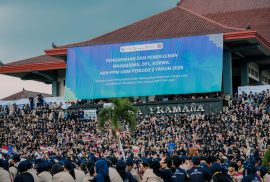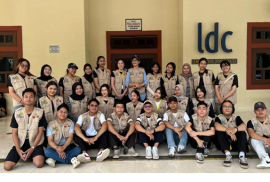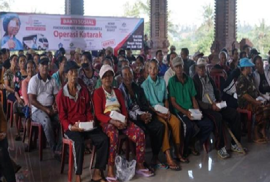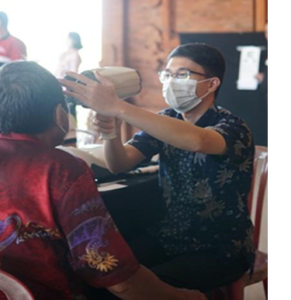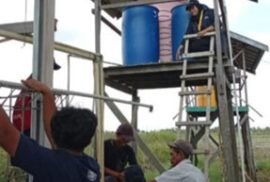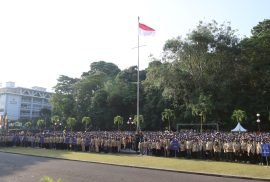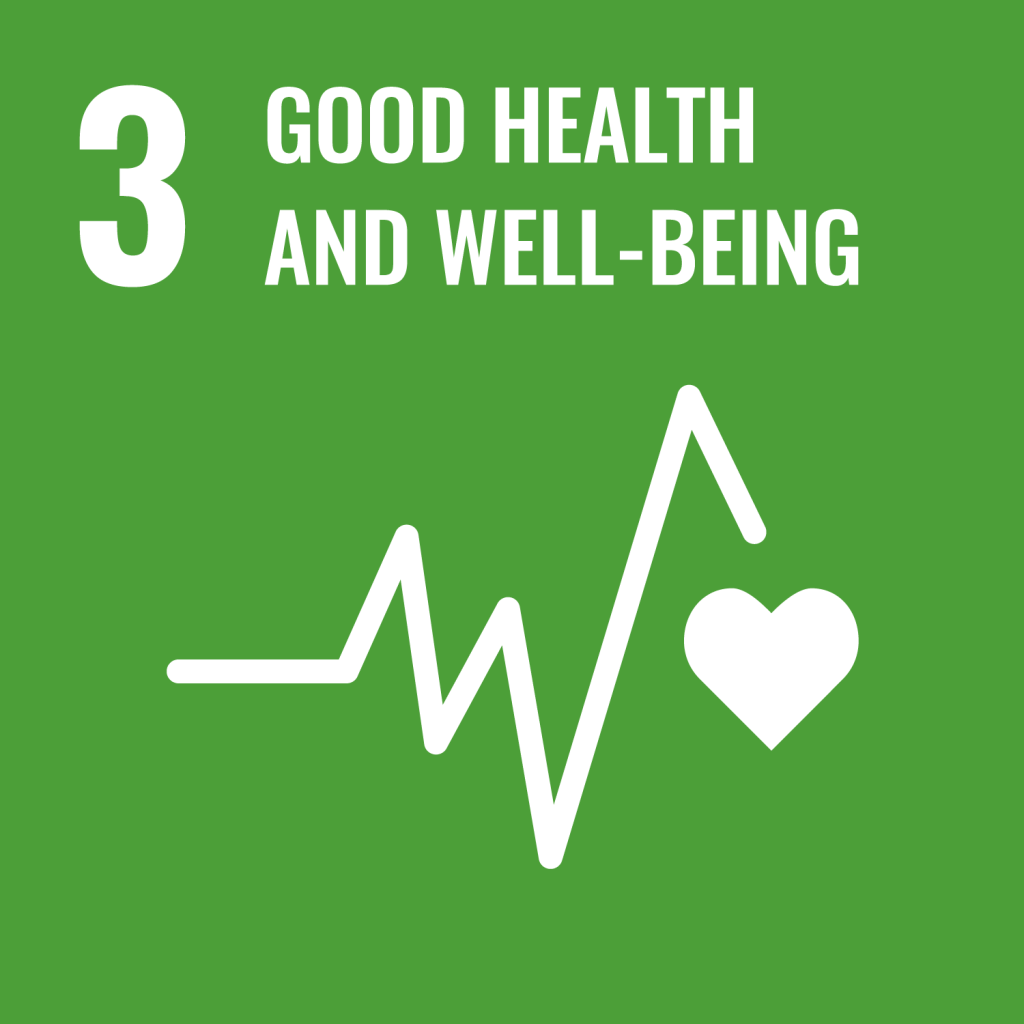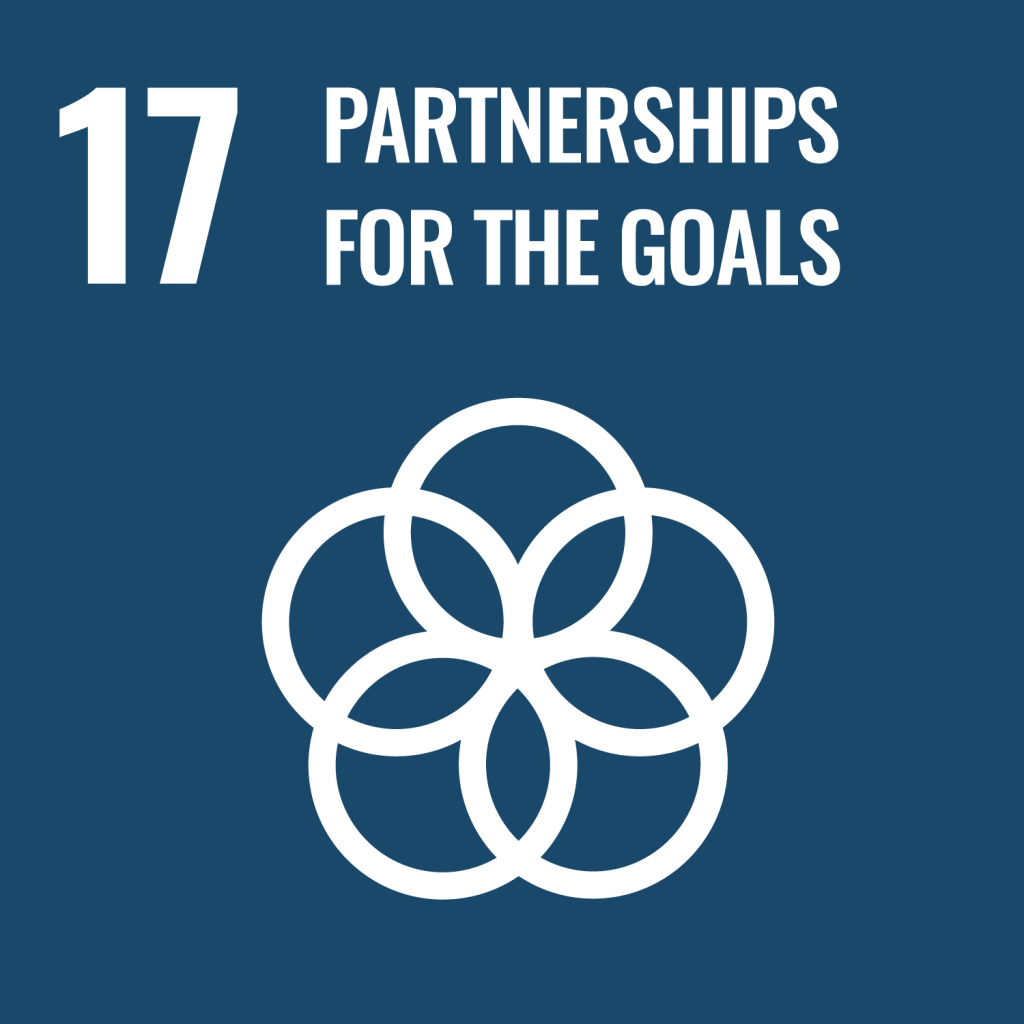A total of 8,038 students were deployed to communities during the Briefing and Deployment Ceremony of KKN-PPM UGM Period 2 of 2025 on Friday (20/6)
Universitas Gadjah Mada (UGM) has once again reaffirmed its dedication to community service with the launch of KKN-PPM Period 2 of 2025. The deployment ceremony was graced by the presence of the Minister of Trade of the Republic of Indonesia, Dr. Budi Santosa, M.Si., alongside UGM Rector Prof. Dr. Ova Emilia, M.Med.Ed., SpOG(K), Ph.D., who jointly officiated the event.
This period, KKN-PPM recorded its highest participation, involving 8,038 students deployed across 287 locations in 236 districts, 122 regencies/cities, and 35 provinces. Their work is supported by 287 Field Supervisors (DPL) and 23 Regional Coordinators (Korwil).
In her address, Rector Prof. Ova Emilia emphasized that KKN is far more than an academic requirement; it is a real-world learning platform that shapes character and leadership. “KKN is a genuine arena of learning where students confront the complexities of society. It nurtures resilience and compassion, preparing them to be future leaders.” she stated.
Continuing with the theme “Food Sovereignty and Environmental Management to Support Peace and National Progress,” KKN-PPM UGM maintains its focus on strategic issues relevant to community needs.
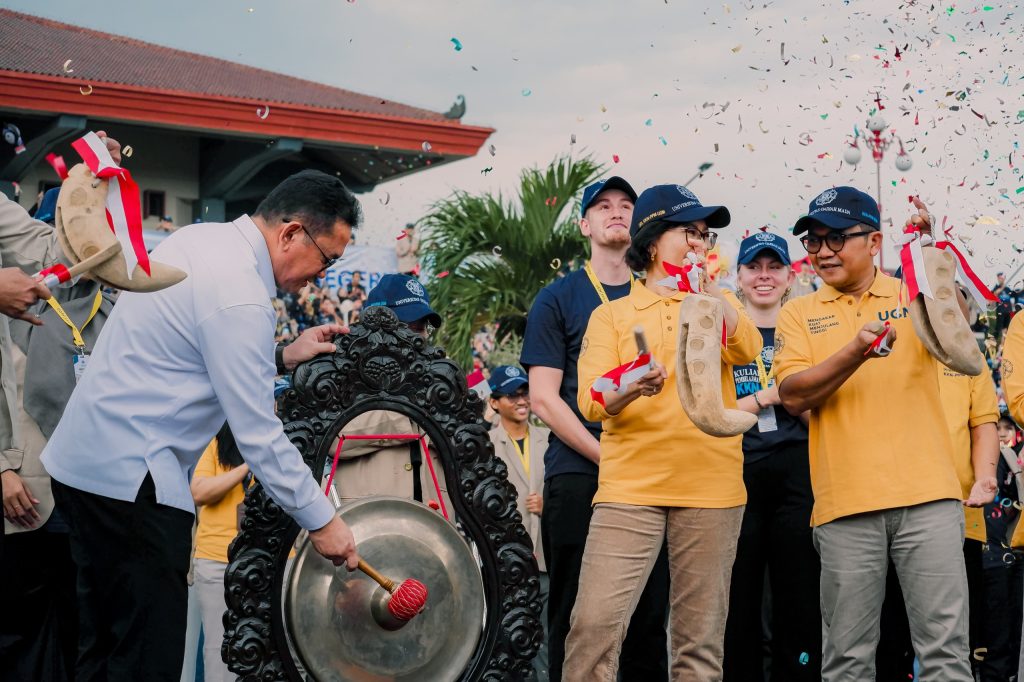
The Minister of Trade of the Republic of Indonesia, accompanied by the Rector and Vice Rector for Education, Community Service, and Alumni (WRKPMA) of UGM, symbolically struck the gong and bamboo slit drum to mark the deployment of KKN-PPM UGM students.
A highlight of this period is UGM’s strategic partnership with the Ministry of Trade, through which students are placed in 110 thematic KKN locations. These locations emphasize support for Micro, Small, and Medium Enterprises (MSMEs), digitization of local grocery stores and kiosks, and revitalizing traditional markets. Minister Dr. Budi Santosa highlighted the students’ role, saying that their contributions transcend academic boundaries to deliver tangible impacts that foster a people-centered economy.
He said, “Students serve as agents of transformation, linking local potential with innovation and technology to strengthen inclusive and sustainable community trade ecosystems.”
Vice Rector for Education, Community Service, and Alumni, Dr. Arie Sujito, S.Sos., M.Si., expressed gratitude to the 162 partners — including ministries, local governments, state-owned enterprises, private sectors, and other higher education institutions — who have supported the program through training, funding, and facilitation. Notable partners include the Ministry of Trade, BPJS Ketenagakerjaan, PT BCA Tbk, PT Freeport Indonesia, and PT Pupuk Indonesia (Persero).
UGM also enhances institutional synergy via its Collaborative KKN scheme with eleven partner universities, including Universitas Nahdlatul Ulama Sunan Giri (UNUGIRI), Universitas Sebelas Maret, Universitas Sultan Ageng Tirtayasa (UNTIRTA), Universitas Warmadewa, Universitas Halu Oleo, Universitas Tadulako, Universitas Borneo Tarakan, Universitas Pattimura, Universitas Gorontalo, Sekolah Tinggi Keguruan dan Ilmu Pendidikan (STKIP) PGRI Pacitan, and the KKN Higher Education Forum in the Yogyakarta and Central Java regions.
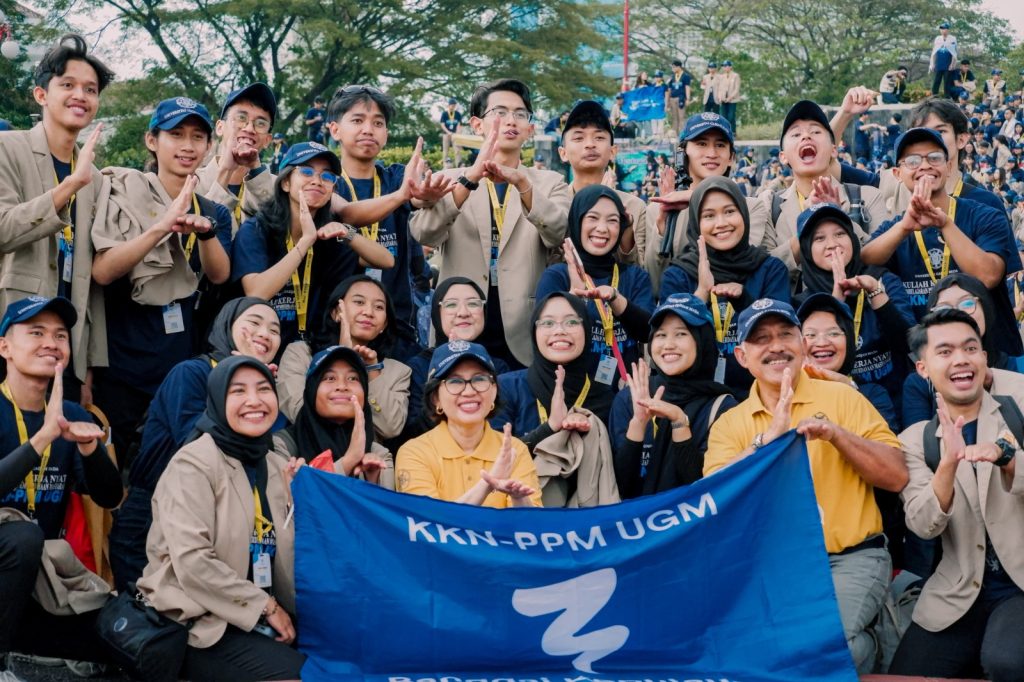
Students and Field Supervisors (DPL) of the Banggai Kepulauan KKN-PPM Unit pose for a group photo with the UGM Rector during the briefing and deployment ceremony (June 20).
These efforts align with UGM’s commitment to the Sustainable Development Goals (SDGs), focusing on food security, education, health, economic growth, poverty alleviation, and partnership strengthening. KKN-PPM themes and activities are designed to provide practical, knowledge-based solutions through cross-sector collaboration.
Moreover, students are encouraged to uphold ethical conduct on digital platforms throughout their KKN activities. While sharing inspiring stories on social media is welcomed to promote best practices, it must be done responsibly to honor the dignity of individuals, communities, and the institution.
More than just numbers, KKN-PPM UGM embodies the university’s tridharma mission: education, research, and community service. Through robust collaboration and a steadfast commitment to people-centered values, UGM continues to play a vital role in addressing the nation’s real-world challenges.
author: bil
photos: Khoir
TAGS:
#SDGs #SDG1 #SDG2 #SDG3 #SDG4 #SDG8 #SDG17 #KKN #KKNPPMUGM #pengabdianmasyarakat #communityservice

